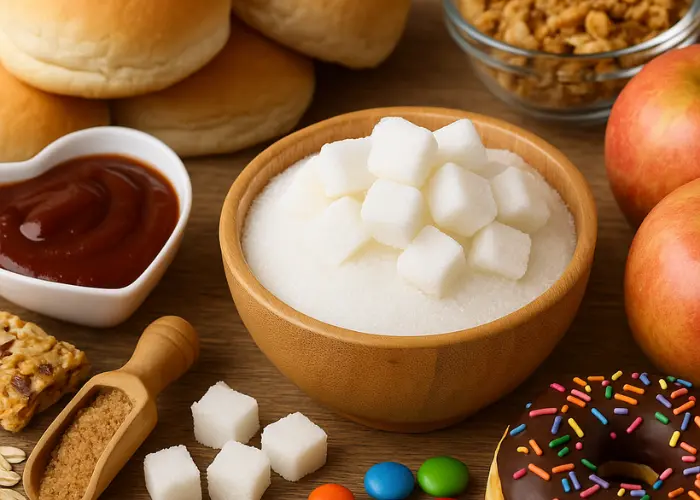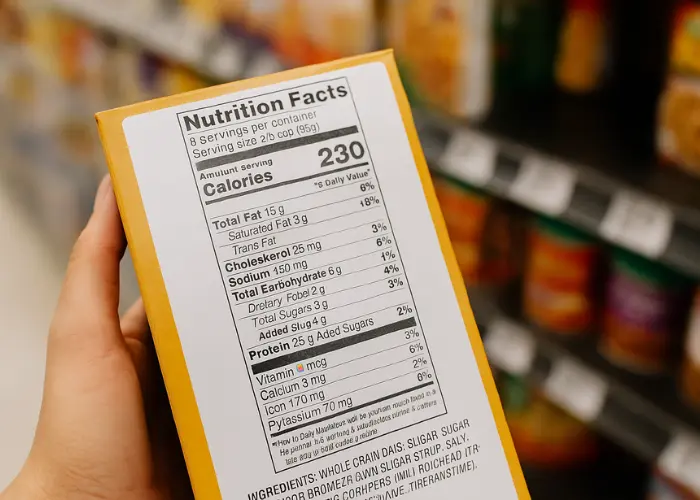Discover the truth about sugar, its hidden sources in everyday foods, and how it quietly impacts your health and wellness.
Sugar is everywhere—and not just in your desserts. From savory sauces to your morning cereal, hidden sugar can sneak into your diet in unexpected ways. Even if you’re skipping soda and sweets, you might still be consuming more sugar than you think.
Let’s explore where sugar is hiding, how it impacts your well-being, and what small changes you can make to protect your health without giving up flavor.
What Counts as Sugar? It’s More Than Just Table Sugar
Most people think of sugar as the white crystals you stir into coffee. But sugar comes in many forms—glucose, fructose, sucrose, corn syrup, and more. These sweeteners often appear in processed foods under dozens of names, making them hard to recognize on labels.
Common hidden sugars include:
- High-fructose corn syrup
- Evaporated cane juice
- Maltose
- Brown rice syrup
- Dextrose
Even foods labeled “natural” or “organic” can still contain these sugars. That’s why reading nutrition labels and ingredient lists is key.
Surprising Foods That Contain Hidden Sugar
It’s easy to spot sugar in candy or pastries. But it also lurks in everyday items that don’t even taste sweet.
Here are some unexpected culprits:
- Flavored yogurts – A single serving can have more sugar than a donut.
- Tomato sauces and dressings – Sugar is often added to enhance flavor.
- Granola and cereal bars – Marketed as healthy, but loaded with sweeteners.
- Bread and sandwich buns – Especially in commercial brands.
- Instant oatmeal – Some flavored varieties pack over 12g of added sugar.
According to the Centers for Disease Control and Prevention (CDC), added sugars should make up less than 10% of your daily calories. Yet the average American consumes far more than that—often unknowingly.
Health Risks of Consuming Too Much Sugar
Over time, a high-sugar diet can quietly chip away at your health. The most common effects include:
- Weight gain: Extra sugar often means extra calories, especially from drinks and snacks.
- Fatigue and energy crashes: Sugar spikes your blood glucose, then drops it, leaving you tired.
- Mood swings: Fluctuating blood sugar can influence mood and focus.
- Increased risk of chronic conditions: Studies show excess sugar may contribute to heard disease and type 2 diabetes.
It’s not about fear—it’s about awareness. Sugar isn’t evil, but too much of it, especially from processed sources, can have long-term effects.
Simple Ways to Cut Back Without Feeling Deprived
You don’t need to quit sugar cold turkey. Making small, steady changes can lead to lasting results.
Here’s how to reduce your sugar intake naturally:
- Read labels: Look for added sugars and be cautious of foods with multiple sweeteners.
- Cook more at home: Preparing meals yourself gives you control over ingredients.
- Choose whole fruits: Nature’s dessert is packed with fiber and nutrients.
- Swap sugary drinks: Opt for water, sparkling water, or herbal teas.
- Be mindful of condiments: Ketchup, BBQ sauce, and even some mustards can be sugar bombs.
Pro tip: Gradually retrain your taste buds. Over time, you’ll find that overly sweet foods become less appealing.
Natural Sweet Alternatives to Try
Want a little sweetness without the side effects of refined sugar? These natural options may work for you in moderation:
- Stevia – A plant-based sweetener with zero calories.
- Monk fruit extract – Sweet and calorie-free, without the blood sugar spike.
- Raw honey – Contains antioxidants but should still be used sparingly.
- Maple syrup – A natural option with a rich flavor and trace minerals.
Remember: natural doesn’t mean unlimited. Use with care, and always check for added sugars in “natural” products.
👉 Discover how Gluco6 can help naturally support healthy blood sugar and metabolism.
Final Thoughts: Sweeten Your Life with Knowledge
Sugar isn’t just a dietary issue—it’s a lifestyle one. By learning where hidden sugar hides and how it affects your body, you’re empowered to make smarter choices that support your health and wellness long-term.
Want more healthy living tips and nutrition insights? Share this article, leave a comment.



